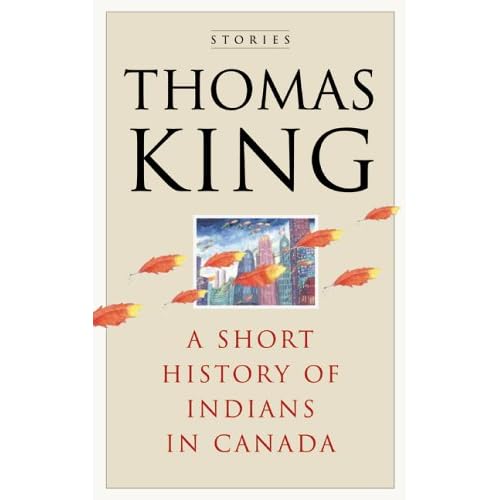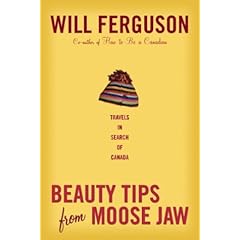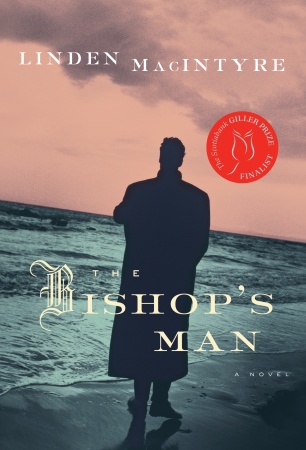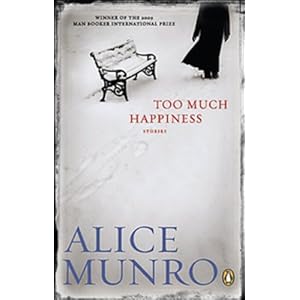Starting the summer off with some true, patriot love, I finished Charlotte Gray's The Massey Murder this afternoon. It's not a typical title that I would choose, but I wanted to read it because:
a) Ever since Charlotte Gray demo'ed her razor-sharp wit and debating skills during CBC's Canada Reads 2013 debates, I've been promising myself I would read something of hers
b) It's non-fiction. My literary conscience tells me I need to read more of that.
c) It's KW's "One Book, One Community" selection for this year and the book nerd in me needs to be a part of these kinds of things.
So it turns out that Gray had every right to be critical of the books in the Canada Reads competition. She can write. Not only that, but she gives narrative to history that makes it more accessible for readers like me who are all about the story.
She also gives a voice to the voiceless in this book. Subtitled, "A Maid, Her Master and the Trial That Shocked a Country," this book offers best guesses as to what really happened when Bert Massey was shot by his maid when entering his house one February evening in Toronto, 1915. Gray highlights how Carrie's (the maid's) voice was hardly needed or given consideration in a male-dominated, morally-motivated and class-driven society.
I like this quote: "Servants are everywhere and nowhere in history. Carrie and women like her worked too hard to have any energy left for writing diaries or letters, and if any of them did manage to scribble down something, it has probably been lost. When a youngster like Carrie went into service, she walked into the shadows." (p. 90)
Gray does an excellent job of putting Carrie Davies' story in context. She provides background on the famous Massey family, the Toronto newspaper wars, class divisions, and Canada's place in WWI, which gives the story significance not only in the changing tides of 1915, but also today.
My one complaint about the book is that is the writing seems to mellow or loosen by the end. Initial chapters give the impression that the book is leading to something greater and more powerful at the end. But maybe that was intentional. I'll have to think on that a little longer.
Anyway, it's definitely worth reading and if anybody wants to join me at the September 2014 author visits where this book will be discussed, do let me know. ;)
I think one of my favourite part about books/reading in general is the community that grows and connects around a piece of writing. I'm always intrigued to find out which books are lining my friends' shelves or traveling around in their backpacks, especially if they're books with which I have a connection. A book in common is an instant bond... So...what am I reading? Stick around and see....
Showing posts with label canadiana. Show all posts
Showing posts with label canadiana. Show all posts
Tuesday, July 01, 2014
Sunday, July 14, 2013
More Canadiana in Germany (#bookaday 9)
Reading makes you nicer. In case you were looking for another great reason to savour a quality piece of fiction this summer, there it is. You can read this Time editorial if you want to know the details. The editorial also covers "carnal versus spiritual reading." (And yes, typically reading a novel would fall into the latter category.) We are becoming a society that does too much reading for information's sake and not enough reading for enjoyment's sake. As a Primary teacher and lover of fiction, this freaks me right out. Like the environmental citizen who drives a Prius or buys only organic just to do his/her part, I decided to up my ratio of spiritual to carnal reading this summer, just to do what I can to counteract the depletion of love for literature in our society.
I just had to figure out a way to work the carnal vs. spiritual thing into a post about Linden MacIntyre's The Bishop's Man, the latest novel to entertain my brain. The book is about a Canadian Catholic priest who specializes in keeping the notorious "sins of the Fathers" out of the spotlight. (Ah? You see the spiritual vs. carnal connection now?) This novel won the 2009 Giller Prize. And yes, it's CBC's Linden MacIntyre who co-hosts the fifth estate. So basically you're looking at a low-risk investment here if you're after a good read. Guaranteed return on your time, folks.
What I thoroughly enjoyed about MacIntyre's writing was his ability to capture thought patterns. He brings the reader in, out and through narrator Father McAskill's layers of memories and creates a collage of detail that allows the reader to understand McAskill's past and present as one complicated, organic whole.
The language is beautiful as well. MacIntyre is able to call attention to words through protagonist Father MacAskill's love of of them. The story is anchored in Canadian geography and explores themes of family, community and masked identity.
I stood in the hotel room bathroom to finish this one. (It was late. My husband needed sleep and I needed light to get through the last few chapters.) It's that good. Five out of five stars for this spiritual read.
I just had to figure out a way to work the carnal vs. spiritual thing into a post about Linden MacIntyre's The Bishop's Man, the latest novel to entertain my brain. The book is about a Canadian Catholic priest who specializes in keeping the notorious "sins of the Fathers" out of the spotlight. (Ah? You see the spiritual vs. carnal connection now?) This novel won the 2009 Giller Prize. And yes, it's CBC's Linden MacIntyre who co-hosts the fifth estate. So basically you're looking at a low-risk investment here if you're after a good read. Guaranteed return on your time, folks.
What I thoroughly enjoyed about MacIntyre's writing was his ability to capture thought patterns. He brings the reader in, out and through narrator Father McAskill's layers of memories and creates a collage of detail that allows the reader to understand McAskill's past and present as one complicated, organic whole.
The language is beautiful as well. MacIntyre is able to call attention to words through protagonist Father MacAskill's love of of them. The story is anchored in Canadian geography and explores themes of family, community and masked identity.
I stood in the hotel room bathroom to finish this one. (It was late. My husband needed sleep and I needed light to get through the last few chapters.) It's that good. Five out of five stars for this spiritual read.
Sunday, July 15, 2012
Lives Of Girls and Women Audio Book
I spent the first four hours of my weekend road trip alone in the car, but in good company: at the last minute, I doubled back into the house and grabbed the audio book version of Alice Munro's Lives of Girls and Women. I had originally purchased this with the thought that I could listen to it while I crocheted something, but it turns out audio books are great for long drives, too.
I really enjoy reading Alice Munro, in case my blog posts on Too Much Happiness, Runaway and Dance of the Happy Shades didn't make that clear already. I count Lives of Girls and Women among my top 10 favourite all-time books, but it had been years since I actually read it, so the audio book was a bit of a treat from memory lane. I enjoy this book so much because it falls squarely into the category of outsider fiction, which is my default setting when it comes to choosing fiction. Give me a realistic story of a lovable misfit and I'm pretty much guaranteed to give it four stars. What gives this particular work a place on my top 10 list, however, is the extra layer that Munro's poetry adds. This is great gifting material, but I think the giver should read it first, of course!
I really enjoy reading Alice Munro, in case my blog posts on Too Much Happiness, Runaway and Dance of the Happy Shades didn't make that clear already. I count Lives of Girls and Women among my top 10 favourite all-time books, but it had been years since I actually read it, so the audio book was a bit of a treat from memory lane. I enjoy this book so much because it falls squarely into the category of outsider fiction, which is my default setting when it comes to choosing fiction. Give me a realistic story of a lovable misfit and I'm pretty much guaranteed to give it four stars. What gives this particular work a place on my top 10 list, however, is the extra layer that Munro's poetry adds. This is great gifting material, but I think the giver should read it first, of course!
Tuesday, June 12, 2012
Too Much Happiness By Alice Munro
More from the author who writes about the "dull, simple, amazing and unfathomable -- deep caves paved with kitchen linoleum."
If I had to sum up this book in just two words, I would choose "bleak" and "addictive." Nobody writes a story like Munro, and while this isn't my favourite short story collection by her, a book by Alice Munro is a guaranteed good read. I was surprised to read several with male protagonists in this collection.
The Observer has a few in-depth articles on Munro, including a 2009 review of this book.
Purchased at: Booksmarts, K-W's own version of The Book Vault.
Started: Friday, May 25
Finished: Monday, June 11
If I had to sum up this book in just two words, I would choose "bleak" and "addictive." Nobody writes a story like Munro, and while this isn't my favourite short story collection by her, a book by Alice Munro is a guaranteed good read. I was surprised to read several with male protagonists in this collection.
The Observer has a few in-depth articles on Munro, including a 2009 review of this book.
Purchased at: Booksmarts, K-W's own version of The Book Vault.
Started: Friday, May 25
Finished: Monday, June 11
Tuesday, May 01, 2007
A Short History of Indians in Canada

Thomas King is, without a doubt, the most featured author in my list of books. There is, however, good reason for that! He writes satire unlike any other, and I just can't get enough salt-in-the-wound humour these days.
I've just finished, A Short History of Indians in Canada. The title alone was enough to stir up controversy among those who saw me reading it, the common response being a nervous, "Er...what is that book about?" (The best answer I've been able to come up with, for the record, is, "Well, the title says it all.")
In this collection of short stories, you will find:
-reverence and irreverance, sometimes at the same time.
-King writing in a woman's voice (only for 1/2 dozen pages or so, but I believe it's a first)
-(some) stories that have no obvious connection to aboriginals in Canada
-broken families; broken relationships; broken promises
-snappy jokes
-jarring juxtapositions (I'm still working on the incorporation of Star Trek into Canadian history...)
A Short History is a potentially quick read that should, in my opinion, be read slowly. I've been savouring it for about three weeks, and I think I'll go back and read some parts again.
Drawing on the high school history class theme of my Beauty Tips post, I think that some of these stories would fit much better in history class than English class...and I'm going to start sneaking copies into my would-be-history-teacher friends' bookshelves just to see what might happen.
Labels:
aboriginal,
canadiana,
fiction,
history,
humour,
satire,
short stories
Monday, April 30, 2007
Beauty Tips From Moose Jaw

I've just finished a course on teaching writing. One of the main questions we struggled with in our twice-weekly class discussions was how to escape from the dreaded 5-paragraph essay format when creating writing assignments. I'd like to give a copy of Will Ferguson's Beauty Tips From Moose Jaw to each and every high school teacher with any kind of connection to teaching Canadian history or geography. Ferguson gives an excellent example of how writing about history doesn't have to be boring! (In fact, it can even be funny!)
My friend Lynne says that this book is what inspired her to travel across Canada. I can see why! Ferguson does a good job of making the everyday interesting. (Read this book and you'll have a new level of respect for the cultural significance of a grilled cheese sandwich, for example.) Continuing on the grilled cheese theme, some chapters in the book are a little...dull and synthetic. Those would be the ones stuffed into the middle--the three-chemicals-short-of-a-garbage-bag filling that holds the gloriously toasted bread (ie. the opening and ending chapters) together.
My advice to somebody who's thinking about reading this book: if a chapter gets boring, skip on ahead to one that looks more interesting...you're not going to miss much! This would be a good book to find on tape for a road trip, or to read at a summer cottage....or even to read aloud with a group of friends, if you're into that sort of thing. Ferguson's skill with language makes this a book that sounds good (ie. even funnier) out loud.
Another disappointment I had with the book is that so many good sights and sites are skipped over. I suppose that could be part of the point of the whole book. For each and every, "Oooooh. I wish he'd included a chapter about...." there's a fascinating history assignment waiting to be written.
Subscribe to:
Posts (Atom)



